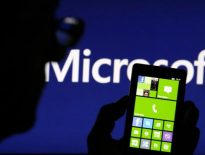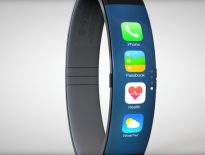Whisper is the new Snapchat, is the new Twitter, is the new Facebook. If you follow the fad-chasing hype of the modern tech media, you probably can muster little but sniffing indifference as the world’s largest social network hits the 10-year mark: Facebook, after all, is nearing middle age. It’s already passe!
But throughout its 10-year history, Facebook has defied the media’s expectations, morphing into a cultural giant even as it was dismissed as a fad for college students.
“Every large company at the center of a national debate gets a media narrative,” said Joshua Benton, the director of the Nieman Journalism Lab at Harvard.
And Facebook? Well, it’s at the center of half a dozen big debates.
In the beginning, there were kids. (In the end there will be kids, too, because for some indeterminable reason, the fickle tastes of teenagers seem to serve as proxy for cultural cache wherever technology’s involved.)Early adopters by nature, high school andcollege students were the first ones welcomed to Facebook. And in the site’s early years, that’s all it was: a novelty for upstart Ivy-Leaguers and a fad for the “olds” to act baffled about.
“When Facebook began, it was understood as an intimate service for students of elite colleges,” writes Danah Boyd, a researcher at Microsoft who studies how teens use social media. But in a good example of teenage tech prescience, many students could already see two steps beyond that.
By 2006, Facebook had expanded to colleges throughout the country — and columnists from Bowling Green State to Brown University could read the proverbial tea leaves. (“Leave Facebook — if you can,” reads one headline in the University of Alabama’s Crimson Source, two years before most mainstream outlets even acknowledged the site’s existence.) The “kids” couldn’t have known it then, but Facebook was on the brink of revolution. In September, the site would unveil News Feed — a profound, protest-sparking annoyance to hard-core Facebook users at the time, but a hallmark of the site and its disruptive influence now.
News Feed changed the fundamental purpose of Facebook. It also forced tech reporters and other cultural gatekeepers to reconsider the site’s staying power. Clive Thompson, the author of “Smarter Than You Think: How Technology is Changing Our Minds for the Better,” breaks it down this way: Before News Feed, Facebook was a collection of discrete, individual pages, not unlike a yearbook. After News Feed, Facebook became a portal through which you could easily, even passively, keep tabs on everyone in your life.
“It was very destabilizing. It’s hard to remember what Facebook was like before they turned on News Feed,” Thompson says. “That started this meme of ‘oversharing.’ It used to take a lot of work to check in on everyone’s page — now you could check hundreds of pages at once. So your friends are doing more sharing. And you’re noticing it more.”
Oversharing! It’s either the greatest blessing or curse of the social media era, depending on your age, social outlook and tolerance for hundreds of prettily filtered pictures of other people’s dogs and children.The ability to share photos and text like never before attracted millions of people to Facebook in its early years, gently foreshadowing the fall of Myspace and the great flood of think pieces on narcissism and TMI in social networks.
If you see the history of the Web as a series of democratizing moments . . . then Facebook and Twitter were just the latest iteration of a longtime trend,” argues Benton, the director of Harvard’s Nieman Lab. “Facebook represents the first time that the majority of Americans were given publishing rights.” But oversharing wasn’t the only point of concern among Facebook’s critics. The more people joined the site, the more it seemed sort of naggingly unknowable: A site prefaced on openness and sociability, whose purpose was to persuade people to share more, shared so little of itself. The site amassed an extraordinary trove of personal data, but remained fuzzy on where that data went and who owned it. News Feed, Facebook’s greatest innovation, operated according to a set of mysterious algorithms that no one really understood.
These were the years of the “Facebook burn” story, says Thompson, who like many reporters began paying closer attention to the site in 2008. Early users were beginning to graduate from college, out into a world where prospective employers could Google up those red Solo cup pictures.
There were other problems, as well: The mainstreaming of Facebook meant that users found themselves friending people from an array social contexts, displaying the same face to their boss and grandmother that they showed frat buddies and friends. And so, as quickly as it started, our collective love affair with Facebook quietly flamed out — the fever reached its pitch, the IPO conclusively installed the company to a place in the corporate pantheon, and the kids (anecdotally, there’s little conclusive data on this) began to flee for freer shores,safe from the eye of curious parents and Facebook’s greedy corporate overlords. These days, Facebook is habitually characterized as what Benton terms a “giant unknowable borg.” That portrayal is, in some ways, self-propagating. Social networks thrive on the perception that everyone is on them. As the media narrative turns elsewhere, users do too.
“People’s engagement with the site now that everyone they know is on there is very different,” writes Boyd, who considers the mainstreaming of Facebook a turning point in its cultural narrative. “Of course, in the process, it’s become less private and more commercial, both of which shape people’s relationship to it.”
How much is true, and how much is projection? How much springs from an old media culture grappling uncomfortably with the new? It could take 10 more years to answer those kinds of questions — and given the current climate, no one wants to bet that Facebook will stay dominant that long.
“Do I think Facebook will be around a long time? Probably not, no,” Thompson says. “I’m speaking in terms of civilizations here. Long periods of time. Ten years looks like a long time, maybe, but it’s nothing versus Ford or Standard Oil — companies that dominated American culture for hundreds of years.”
It’s an odd thought, perhaps, that Facebook the corporate entity — the advertising monolith, the first Web site you check every morning, the hope of investors and inventors the world over — could itself be just a blip on a much greater horizon. Which makes all our updates over the past 10 years, billions of photos and posts and friend requests, countless whiled hours, look like little more than a mound of virtual dust.
Thompson sees things a bit more poetically. Consider those fleeting little updates dots in a pointillist painting, he argues. Only when you zoom out do you see the picture: A life assembled from a thousand tiny moments, breakfast photos and relationship statuses and funny memes, shared with the wider world. Facebook will leave us with that sense of ambient social awareness, Thompson argues, long after the site is gone. And its legacy will include other minor tweaks to the social code: greater awareness of our social circles, for instance, and the empowerment of the individual to make and share news.
So wherever Facebook ends up in another 10 years, we can say this much conclusively: It wasn’t just a trend. Or, to quote rosy-eyed Facebook executive Sheryl Sandberg: “Mark . . . always said Facebook was started not just to be a company, but to fulfill a vision of connecting the world.”






